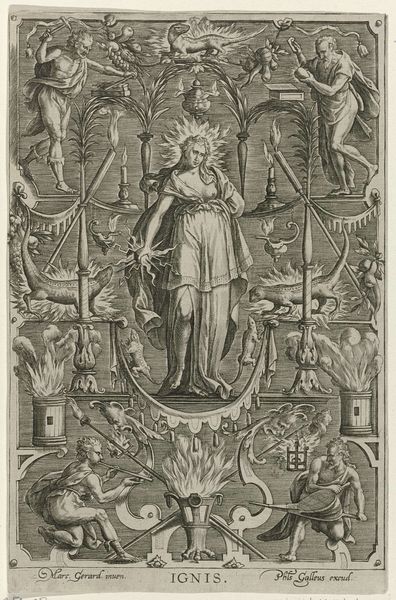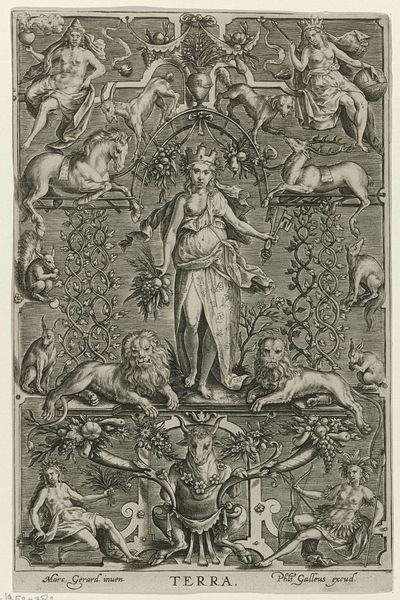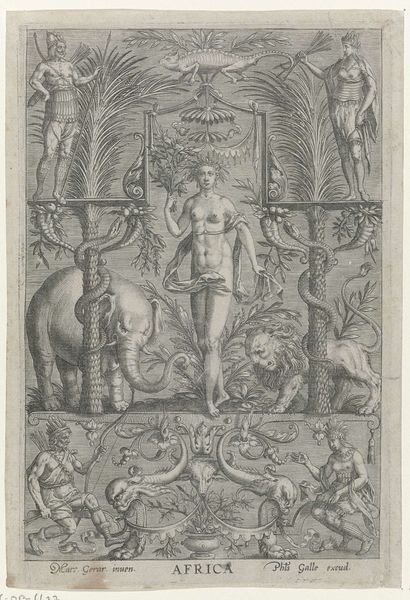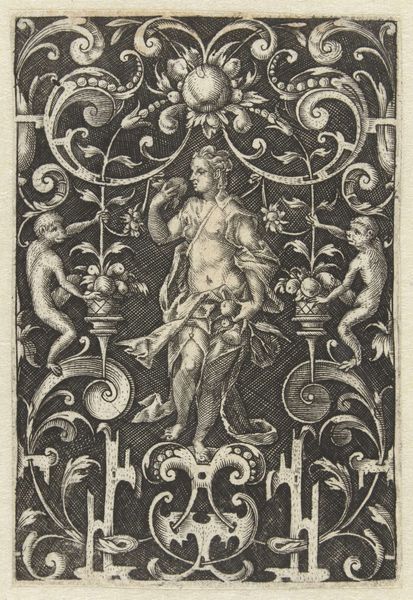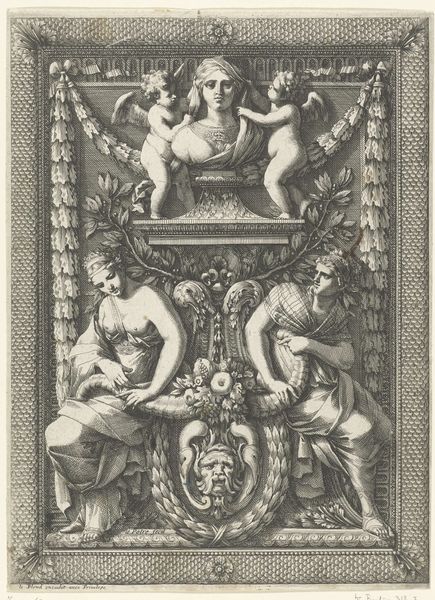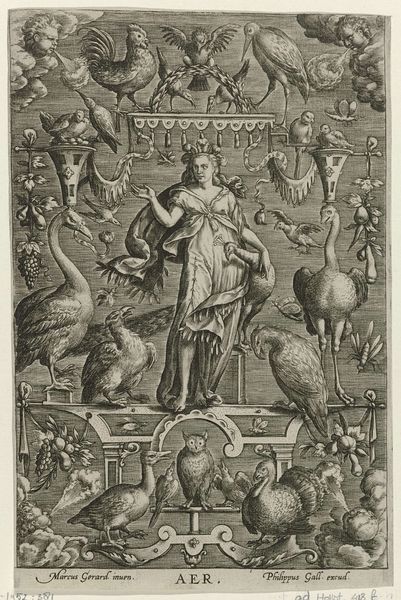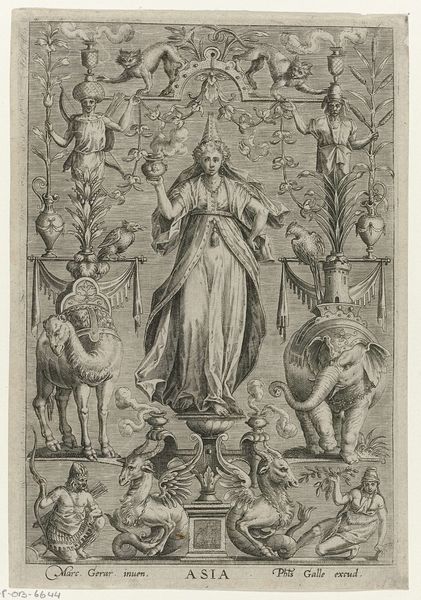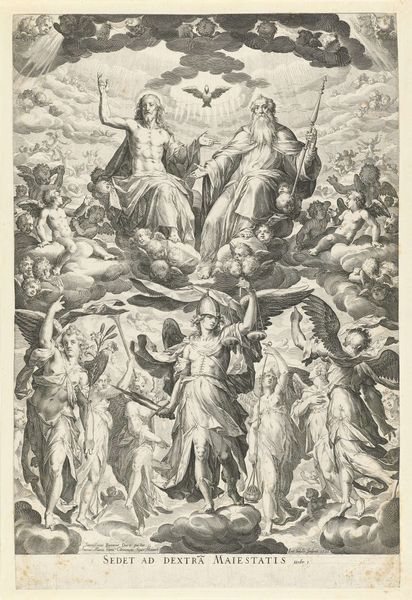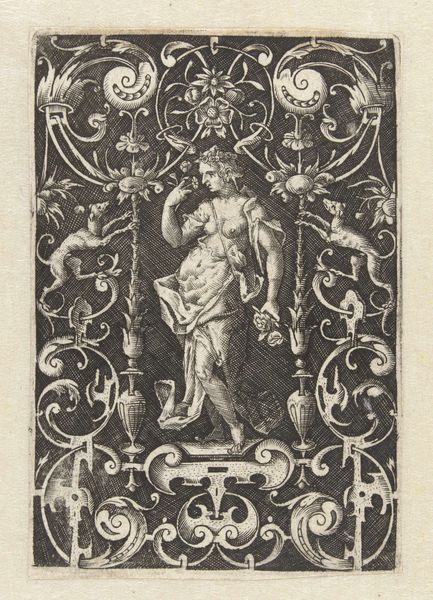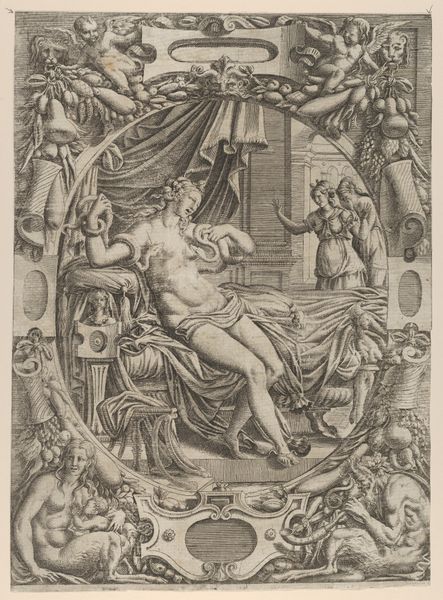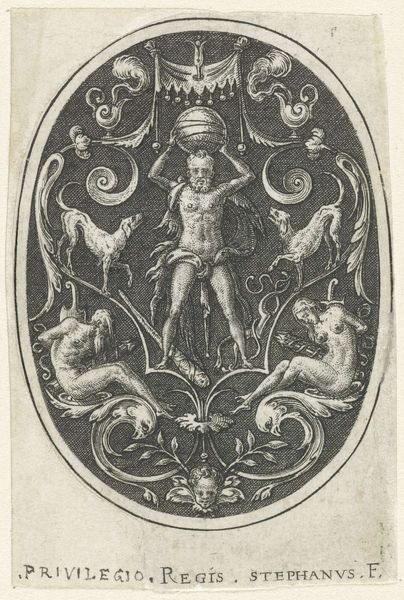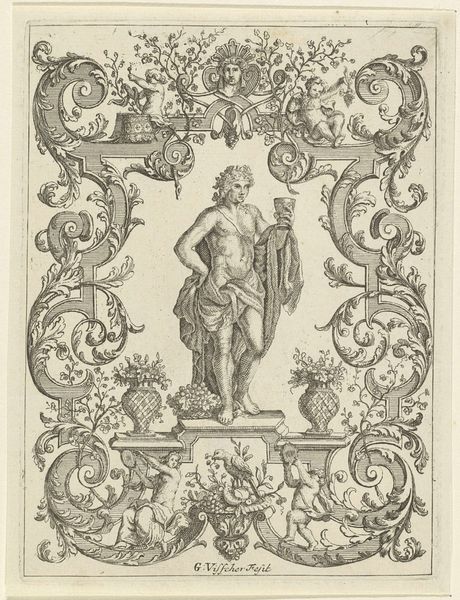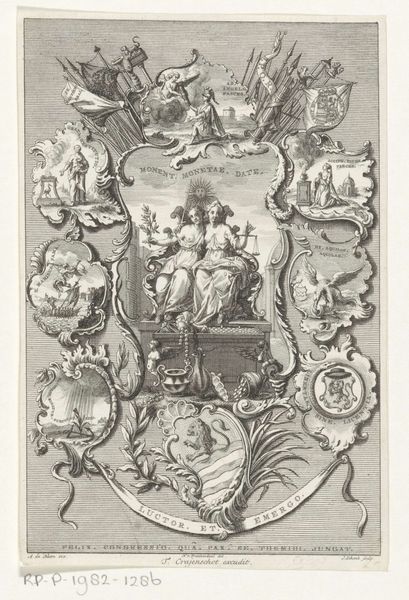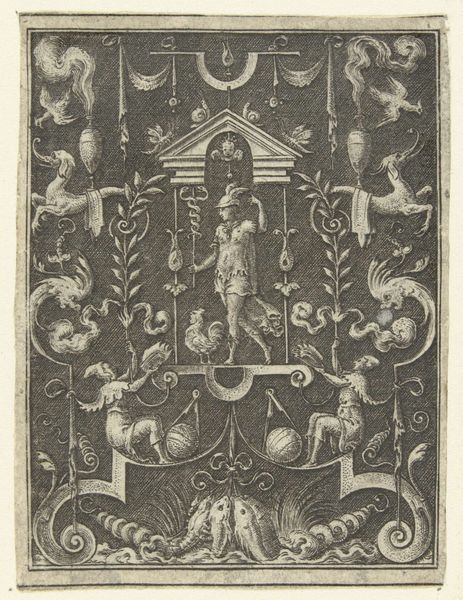
drawing, graphic-art, print, ink, engraving
#
drawing
#
graphic-art
#
allegory
#
pen drawing
# print
#
mannerism
#
figuration
#
11_renaissance
#
ink
#
history-painting
#
engraving
Dimensions: height 198 mm, width 132 mm
Copyright: Rijks Museum: Open Domain
Philips Galle created this engraving titled "Water" sometime before his death in 1612. It’s an allegorical representation, placing the element of water within a visually rich framework that reflects the cultural and scientific understandings of the late 16th century. This print is not just a depiction of water; it's an embodiment of the early modern worldview, reflecting the era’s fascination with natural philosophy and the ordering of the cosmos. Galle, working in the Netherlands, a center for cartography and scientific illustration, would have been influenced by the burgeoning interest in understanding and classifying the natural world. The image creates meaning through the use of classical figures, Neptune and Amphitrite, who symbolize dominion over the seas, alongside sea creatures and decorative elements which were intended to convey the abundance and mystery of the aquatic realm. The engraving’s purpose may have been didactic, aiming to educate viewers about the natural world, or purely decorative, appealing to the aristocratic taste for elaborate imagery. Art historians consult emblem books, scientific treatises, and period accounts to uncover the original intentions and meanings embedded in such works, reminding us that art is always a product of its time.
Comments
No comments
Be the first to comment and join the conversation on the ultimate creative platform.
